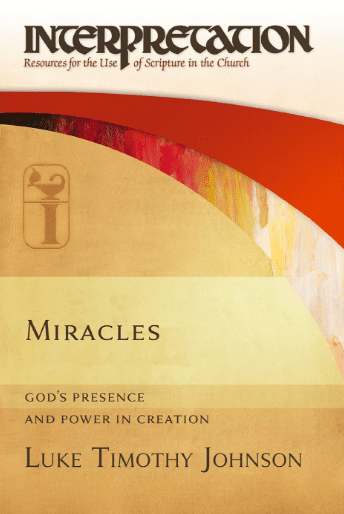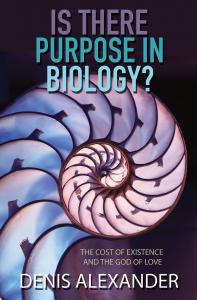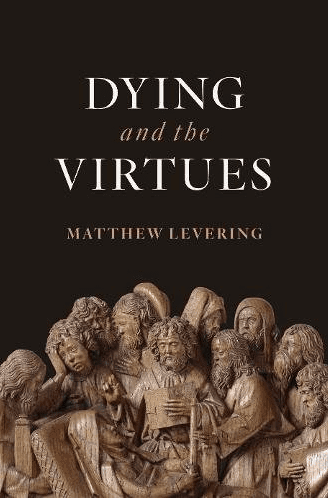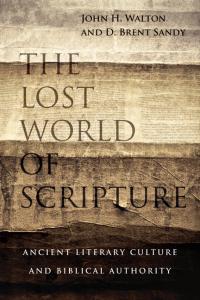 I begin a new series on miracles, focusing on Luke Timothy Johnson’s new book Miracles: God’s Presence and Power in Creation.
I begin a new series on miracles, focusing on Luke Timothy Johnson’s new book Miracles: God’s Presence and Power in Creation.
Yes or Almost No or No? That’s the theme of the first chapter.
Yes
Everything in Christianity hangs on the miraculous: no God, no act of God in reality, no resurrection, no miracles by Jesus — no faith left. Paul says as much in 1 Corinthians 15.
The heart of the Christian message was, in turn, the greatest sign and wonder of all, the resurrection of Jesus and his exaltation to the right hand of God.
Miracles in the Bible operate as acts and as prophetic words that are fulfilled.
Such assertions concerning the immediate and present experience of God’s power in the empirical realm—that is, among and within and through actual human bodies here and now—go together with a second bold claim: the messianic age proclaimed and celebrated by believers is in fulfillment of the prophecies contained in Scripture.
Claiming the fulfillment of prophecy was, in its own way, as much an appeal to the miraculous as were assertions concerning healings and exorcisms.
It didn’t stop with the death of the apostles.
By no means did believers consider the miraculous to be confined to the time of Jesus and the apostles. The power and presence of the living God continued to work in palpable fashion among the saints, those holy men and women who were understood in a mystical sense to be “other Christs.”
Despite the skepticism directed toward the miraculous by Enlightenment figures, as we shall see, a stout belief in the manifestations of God’s presence and power within creation continued among Christians less influenced by the rationalistic premises of critics.
In short, the majority of Christians have celebrated the presence and power of God in creation through signs and wonders, not only in the stories of the Old and New Testament, but also in their own fives.
Almost No
But not all Christians believed or continue to believe in miracles, and denial of miracles is deeply rooted in the Christian story itself. Many leaders of the church have not believed in miracles for their day and some even failed to mention Jesus’ own miraculous powers.
This tendency begins with the attitude of Christian apologists toward the miracles claimed for pagan cults.
The same sort of anxiety concerning the miraculous affects the apologists’ attitude toward miracles claimed by Christians. Thus, although Justin’s argument in his Dialogue with Trypho depends so heavily on the fulfillment of Old Testament prophecies, he pays little attention to the wonders performed by the ancient prophets and is suspicious of those claimed by recent prophets: Justin notes that “certain wonderful deeds” have been performed by false prophets to astonish people and “glorify the spirits and demons of error” (Dialogue 7).
In an argument from silence, which strikes me as at least something worthy of consideration, Johnson points to the absence of miracles at times.
In sharp contrast to those writings (apocryphal gospels and acts, martyrologies) that celebrate the continuing power of God at work, not only in Jesus but also through the risen Jesus in his apostles and other saints, the apologists of the second and third centuries are astonishingly reticent even concerning the wonders ascribed to Jesus in the canonical Gospels.
The second- and third-century apologists perfectly represent the … sort of religious disposition, found in the New Testament in the letters of Paul, James, and Hebrews. Right thinking and right acting is the point of religion and the proper expression of the divine power. Mature Christianity is not expressed so much by signs and wonders, as by the quiet moral change in humans and in the structures of human life.
The suspicion, if not the outright denial, of the miraculous continued among bishops and more philosophically inclined Christians through the following centuries.
Many today are cessationists and this taps into Augustine and the Reformers.
Protestant Christians, in turn, are shaped by the bias of the early Reformation against miracles, not least the extraordinary gifts of prophecy and glossolalia, and tend to follow the position of Augustine: miracles were a distinctive manifestation of God’s power during the period of the New Testament but are not to be credited today.
No
Skeptics have always disbelieved in miracles and some argue they are impossible both to define and achieve.
The systematic denial of the miraculous does not begin with modernity. … Epicurus sought to establish the same “freedom from disturbance” (ataraxia) among his followers by denying the reality of omens and portents and prophecies and by insisting that all phenomena can be explained by natural causes, rather than by appeal to divine powers.
Not until the European Enlightenment did a vigorous and principled denial of miracles again appear, now within a Christianity already shaped by the Reformation s rejection of all forms of catholic “superstition.”
What we know today is less Epicurus and more Deism and Hume and then Strauss and Bultmann:
But it was the British Deists of the seventeenth and eighteenth centuries who, under the rubric of “superstition,” eliminated any trace of the supernatural from Christianity, including above all any claims to the miraculous.
This background of a Christianity already defined almost entirely in rational terms provides the setting for the pivotal work of David Hume (1711-76), a Scottish thinker apparently devoid of any strong passion and having at best an attitude of superior condescension toward traditional Christianity. … flumes approach is not ontological (“do miracles happen?”) but epistemological (“can we assent to the assertion that miracles happen?”).
Hume provides a definition of a miracle that he already turns, in the same sentence, to a denial of the miraculous: “A miracle is a violation of the laws of nature; and as a firm and unalterable experience has established these laws, the proof against a miracle, from the very nature of the fact, is as entire as any argument from experience can possibly be imagined” (1.90).
Hume could, in fact, have defined a miracle in more neutral terms without altering his basic position. He could have spoken of an event that is the exception to ordinary human experience, or one that transcends ordinary human expectations … .
Hume’s conclusion is that traditional Christianity is simply incompatible with the rationality celebrated by his peers of the late eighteenth century: “So that, upon the whole, we may conclude, that the Christian Religion not only was at first attended with miracles, but even at this day cannot be believed by any reasonable person without one” (2.101, emphasis original), by which, he means, that faith is itself a kind of miracle, contrary to reason.
The deists lead to Strauss and Bultmann — both of whom denied the miraculous and clothed such stories with mythical interpretation.
The crisis of the present age is that the culturally most influential forms of Christianity have capitulated to a worldview that effectively eliminates the miraculous from serious consideration.
The formation of future ministers in such academic settings, in short, has become complicit in producing preachers of the good news who are embarrassed by talk of signs and wonders, and who (along with Hume) tend to regard claims to the miraculous as the sign of an ignorant and perhaps stupid population, a population that turns out to be, more often than not, the very people to whom ministers are called to preach. Symptomatic is the way the writings of the Episcopal bishop John Spong are taken by many “thoughtful Christians” as the only alternative to a dreaded “fundamentalism,” even though his work is both derivative and puerile (Spong 1992, 1994).





 When we ask about purpose in biology this type of purpose, designated small p purpose by Denis, is not the kind we mean. Small p purpose is uncontroversial although fascinating. Capital P Purpose is a metaphysical concept. Some have argued (or simply stated with certainty) that evolutionary biology demonstrates that Purpose is a meaningless concept in biology. Peter Atkins, Richard Dawkins and Daniel Dennett have stated that there is no purpose in biology. As Denis puts it “Evolutionary biology itself, so the argument goes, renders it impossible that evolutionary history, taken overall, could have any rhyme or reason. Chance rules. Our own existence if a lucky accident. Things could have turned out very differently. Biology is necessarily Purposeless.” (pp. 14-15)
When we ask about purpose in biology this type of purpose, designated small p purpose by Denis, is not the kind we mean. Small p purpose is uncontroversial although fascinating. Capital P Purpose is a metaphysical concept. Some have argued (or simply stated with certainty) that evolutionary biology demonstrates that Purpose is a meaningless concept in biology. Peter Atkins, Richard Dawkins and Daniel Dennett have stated that there is no purpose in biology. As Denis puts it “Evolutionary biology itself, so the argument goes, renders it impossible that evolutionary history, taken overall, could have any rhyme or reason. Chance rules. Our own existence if a lucky accident. Things could have turned out very differently. Biology is necessarily Purposeless.” (pp. 14-15) Denis Alexander challenges the idea that biology is necessarily Purposelessness. He does not claim that Purpose can be inferred from biology. Rather, he will argue that the assertion that it is necessarily Purposeless is a metaphysical assumption divorced from the biological science. Purpose is consistent with evolutionary biology; at least as consistent as the absence of Purpose. While random and contingent events may point to Purposelessness, the physical constraints that shape biology and life suggest that Purpose is also a reasonable hypothesis. The tools of science are simply not designed to address the question of Purpose. Science, Denis writes, “can render certain metaphysical inferences less plausible, but trying to establish metaphysical worldviews based on science quickly leads to problems.” (p. 14)
Denis Alexander challenges the idea that biology is necessarily Purposelessness. He does not claim that Purpose can be inferred from biology. Rather, he will argue that the assertion that it is necessarily Purposeless is a metaphysical assumption divorced from the biological science. Purpose is consistent with evolutionary biology; at least as consistent as the absence of Purpose. While random and contingent events may point to Purposelessness, the physical constraints that shape biology and life suggest that Purpose is also a reasonable hypothesis. The tools of science are simply not designed to address the question of Purpose. Science, Denis writes, “can render certain metaphysical inferences less plausible, but trying to establish metaphysical worldviews based on science quickly leads to problems.” (p. 14) In
In 

 After looking at 2 Timothy 3 and Paul’s use of
After looking at 2 Timothy 3 and Paul’s use of 


 Plotless or purposeful? The traditional Christian narrative is, it appears, a plotless beginning, a fall brought about by human sin, redemption through the cross, a holding pattern present that captures all our attention, and anticipation of a plotless future. I don’t think that, as a story, this is much better than the naturalist’s story of purposeless evolution and ultimate total extinction. I also don’t think that it is the story of scripture. It is a story that arises, I believe, from a misinterpretation of Genesis 1-3 and a misunderstanding of the gospel.
Plotless or purposeful? The traditional Christian narrative is, it appears, a plotless beginning, a fall brought about by human sin, redemption through the cross, a holding pattern present that captures all our attention, and anticipation of a plotless future. I don’t think that, as a story, this is much better than the naturalist’s story of purposeless evolution and ultimate total extinction. I also don’t think that it is the story of scripture. It is a story that arises, I believe, from a misinterpretation of Genesis 1-3 and a misunderstanding of the gospel.



